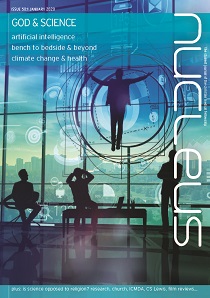'She was always hungry but they wouldn't let her eat… the forces inside of her, the demons'. (1) Based on the true story of Anneliese Michel who died aged 24 in 1976 in Germany, (2) The Exorcism of Emily Rose revolves around a charge of negligent homicide after an 'exorcism gone wrong'. The prosecution argues that a young woman called Emily, diagnosed with 'psychotic epileptic disorder', was neglected by the defendant, Father Moore, who attempted multiple exorcisms on Emily, while failing to encourage her to seek medical help for a disease that could have been managed.
The defence argues for a case of deliverance from demon possession to which Emily willingly submitted. The purpose of telling her story is to show the existence of the spiritual real. The film seems to hold fairly true to the original trial (with some artistic licence of course!).
Does the film provide an answer? Ultimately no, but that's the director's aim. It is thought-provoking and left me pondering several questions about disease and demonic possession. As the story unfolded, I jumped between the two arguments. As a medic I know there are biological, genetic and social causes for psychosis and epilepsy; as a Christian I know we exist in a tension between the physical and spiritual realm; (3) I read about Jesus casting out demons and healing sickness. (4) The Bible talks of both disease and demon possession. If Jesus saw both then we should expect both to still exist today; this world is no less in contact with the spiritual realm than in the time Jesus walked the earth. One of the challenges of being a Christian medic is bringing these two aspects together in a balanced way.
We live in an increasingly secular society and curriculums don't give space to think about the spiritual aspects of disease. Christians may be well placed to consider this missing element, important in day-to-day psychiatry, even if demon possession may appear very rare. As Erin, the defence attorney in the film says 'Maybe they see possession for what it really is; maybe we've taught ourselves not to see it.' Unlike our textbooks, the Bible doesn't have a list of 'symptoms' for demon possession — but there are cases in the New Testament we could study. These vary in their presentation, from a manifestation of great strength (5) and deliberate self-harm to convulsions. (6) As is often the case in psychiatry, one size does not fit all. But we are not alone in this, the Holy Spirit is our helper and God gives us the gift of discernment. (7) Through intimacy and daily friendship with the trinity, God will give us eyes to see the unseen as well as the seen.
This is a controversial but important topic which we're in a prime position to consider. Sometimes this expertise on the spiritual aspects of disease may be of help to our church family if we take time to allow God to teach us.Iris McIntosh is a psychiatry core trainee in London































